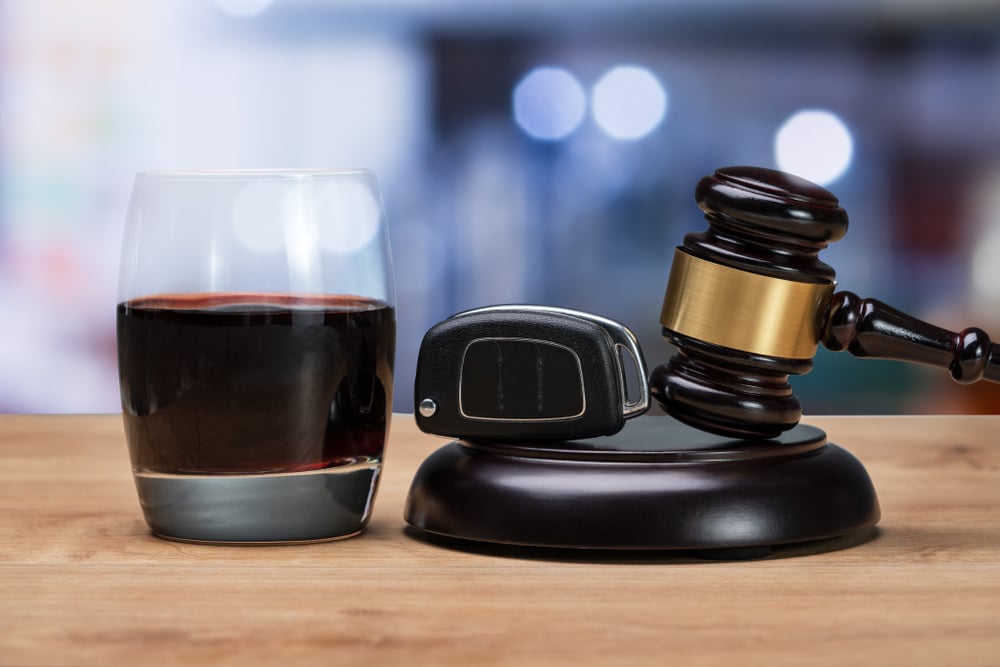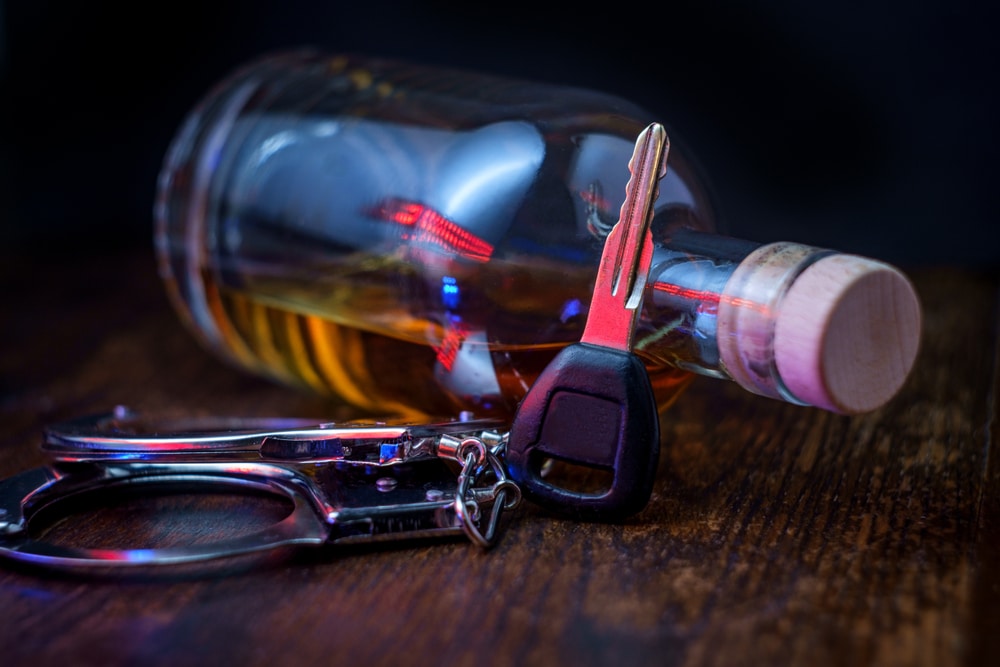
Pennsylvania takes a strong stance against driving under the influence (DUI) through comprehensive legislation and strict enforcement measures. The state’s DUI laws are designed to protect public safety while providing clear consequences for offenders. Law enforcement agencies across the commonwealth work in coordination to identify, arrest, and process individuals suspected of driving under the influence of alcohol or controlled substances.
The Pennsylvania Vehicle Code Section 3802 establishes the legal framework for DUI enforcement, setting clear standards for what constitutes impaired driving. The state operates under a three-tier system based on blood alcohol concentration (BAC) levels, with increasingly severe penalties for higher levels of intoxication. This structured approach allows for proportional response to varying degrees of offense severity.

0.08% or higher for regular drivers and 0.04% for commercial drivers

Yes

None

Mandatory

Yes (0.10%+)
Pennsylvania’s approach to DUI enforcement reflects both urban and rural considerations across its diverse geography. The state’s major metropolitan areas like Philadelphia and Pittsburgh maintain specialized DUI enforcement units, while rural areas often rely on state police and multi-jurisdictional task forces to cover larger territories.
Statistics from the Pennsylvania Department of Transportation show that DUI incidents remain a significant public safety concern, with thousands of arrests made annually. The state has seen a gradual decrease in DUI-related fatalities over the past decade, largely attributed to increased enforcement efforts and public awareness campaigns.
Rural areas present unique challenges for DUI enforcement, including longer response times and fewer resources for checkpoint operations. However, the state has implemented innovative solutions, including mobile testing units and regional enforcement partnerships to address these challenges.
Pennsylvania employs a tiered penalty system based on BAC levels: General Impairment (.08 to .099%), High BAC (.10 to .159%), and Highest BAC (.16% and higher). Each tier carries progressively more severe penalties, including fines, license suspension, and possible imprisonment. First-time offenders may face fines ranging from $300 to $5,000, license suspension up to one year, and mandatory alcohol highway safety school.
Repeat offenders face significantly enhanced penalties, including mandatory minimum jail sentences, longer license suspensions, and installation of ignition interlock devices. The state maintains a 10-year lookback period for prior DUI convictions when determining penalties. This means previous convictions within this timeframe will result in more severe consequences.
The law also provides for additional penalties for those who refuse chemical testing under Pennsylvania’s implied consent law. Refusal results in an automatic one-year license suspension, independent of any criminal penalties that may result from a DUI conviction.
Certain circumstances trigger enhanced penalties in Pennsylvania DUI cases. These include DUI with a minor under 14 in the vehicle, accidents resulting in injury or death, and DUI in a school zone. These situations can result in felony charges, extended imprisonment, and significantly higher fines.
Commercial drivers face stricter BAC limits (.04%) and more severe consequences, including potential loss of their commercial driving privileges. The state also maintains special provisions for drivers under 21, with a lower BAC threshold of .02% under the zero-tolerance policy.
Drug-related DUI cases present unique challenges and carry equivalent penalties to alcohol-related offenses. Pennsylvania law makes no distinction between illegal substances, prescription medications, or over-the-counter drugs if they impair driving ability.
Pennsylvania law enforcement employs various strategies to detect and apprehend impaired drivers. Sobriety checkpoints, roving patrols, and targeted enforcement during high-risk periods form the backbone of DUI enforcement efforts. Officers undergo specialized training in detecting impaired driving behaviors and administering field sobriety tests.
The state utilizes a standardized protocol for DUI stops, including observation of driving behavior, personal contact with the driver, and administration of standardized field sobriety tests. Officers are trained in the National Highway Traffic Safety Administration (NHTSA) protocols for conducting these tests.
Law enforcement agencies also participate in coordinated enforcement campaigns, particularly during holiday periods and special events. These efforts often involve multiple jurisdictions and receive support from state and federal funding sources.
Pennsylvania law enforcement agencies utilize various technologies to detect and document impaired driving. Preliminary breath testing devices provide initial screening, while evidential breath testing machines at police stations or mobile units provide legally admissible results. The state maintains strict calibration and maintenance requirements for these devices.
Advanced roadside detection methods include horizontal gaze nystagmus testing and other standardized field sobriety tests. Officers increasingly use body-worn cameras to document these interactions, providing valuable evidence for court proceedings.
Drug recognition experts (DREs) employ specialized techniques and equipment to identify impairment by substances other than alcohol. These officers undergo extensive training to recognize the signs and symptoms of drug impairment.
Pennsylvania offers various treatment and rehabilitation options for DUI offenders. The state requires completion of Alcohol Highway Safety School for first-time offenders and may mandate drug and alcohol evaluation and treatment as part of sentencing.
Treatment programs range from educational interventions to intensive outpatient or residential treatment, depending on the assessment of the offender’s needs. The state maintains a network of approved treatment providers and monitors program compliance through the court system.
Many counties have implemented DUI courts, which provide intensive supervision and treatment for repeat offenders. These specialized courts focus on addressing underlying substance abuse issues while maintaining strict accountability measures.
The state’s mandatory treatment framework includes several key components. All convicted DUI offenders must complete a Court Reporting Network (CRN) evaluation to determine the need for treatment. Based on this evaluation, the court may order various levels of intervention.
Treatment requirements typically include group counseling, individual therapy, and substance abuse education. The duration and intensity of treatment depend on factors such as BAC level, prior offenses, and assessment results.
Failure to comply with mandatory treatment requirements can result in additional penalties, including extended license suspension or jail time. The state maintains strict monitoring procedures to ensure compliance with treatment orders.


Pennsylvania employs various methods to monitor DUI offenders’ compliance with court-ordered requirements. These include regular reporting to probation officers, random drug and alcohol testing, and electronic monitoring in some cases.
The state’s ignition interlock program requires certain offenders to install devices in their vehicles. These devices prevent vehicle operation if alcohol is detected in the driver’s breath. Compliance is monitored through regular downloads of device data.
Many jurisdictions use specialized probation units for DUI offenders, providing enhanced supervision and rapid response to violations. These units work closely with treatment providers and courts to ensure comprehensive monitoring.
The administrative process for DUI cases begins immediately upon arrest. Officers must submit detailed reports and chemical test results to both the courts and PennDOT. License suspensions may be imposed administratively, separate from any criminal proceedings.
PennDOT maintains records of DUI convictions and administers the point system for license suspensions. The department also oversees the ignition interlock program and restoration requirements for suspended licenses.
Administrative hearings may be requested to contest license suspensions or other administrative penalties. These hearings are separate from criminal proceedings and follow different rules and procedures.
Administrative procedures following a DUI arrest include immediate license seizure and temporary driving privileges. Offenders have limited time to request administrative hearings to contest license suspensions.
The state maintains strict timelines for administrative actions, including notification requirements and appeal deadlines. Failure to meet these deadlines typically results in automatic implementation of administrative penalties.
Restoration of driving privileges requires completion of all administrative requirements, including payment of restoration fees and compliance with treatment and testing requirements.
DUI cases proceed through Pennsylvania’s court system following established procedures. Initial proceedings include preliminary arraignment and hearing, followed by formal arraignment if the case proceeds to the Court of Common Pleas.
Pre-trial procedures may include motions to suppress evidence or challenge chemical test results. Many cases are resolved through plea agreements, though defendants have the right to proceed to trial.
Sentencing follows state guidelines but may vary by county and individual circumstances. Judges consider factors such as BAC level, prior offenses, and completion of treatment programs when determining sentences.
Multiple state agencies play roles in DUI enforcement and prevention. PennDOT oversees licensing, maintains driving records, and administers the ignition interlock program. The Pennsylvania State Police coordinate enforcement efforts and maintain breath testing protocols.
The Pennsylvania Commission on Crime and Delinquency provides funding for enforcement and prevention programs. The Department of Drug and Alcohol Programs oversees treatment provider certification and program standards.
County drug and alcohol agencies coordinate local treatment services and maintain relationships with courts and probation departments. These agencies work together to ensure comprehensive coverage of DUI-related services.
Pennsylvania’s DUI laws interact with those of neighboring states through various interstate compacts. The Driver License Compact ensures that out-of-state DUI convictions are recognized and processed as if they occurred in Pennsylvania.
Out-of-state drivers arrested for DUI in Pennsylvania face both local penalties and consequences in their home states. Pennsylvania courts maintain jurisdiction over criminal proceedings, while administrative penalties may be imposed by both states.
Interstate cooperation extends to enforcement efforts, particularly in border areas where joint operations may be conducted. Information sharing between states helps track repeat offenders and ensure appropriate penalties.
Certain locations within Pennsylvania present unique jurisdictional considerations for DUI enforcement. Federal lands, including national parks and military bases, may involve overlapping federal and state jurisdiction.
Native American reservations maintain separate legal systems, though DUI enforcement typically involves cooperation with state authorities. Municipal boundaries can affect which law enforcement agencies have primary responsibility for DUI enforcement.
Interstate highways present special challenges for enforcement and prosecution, particularly when incidents cross jurisdictional boundaries. Coordinated responses help ensure effective enforcement regardless of location.
DUI convictions carry significant financial consequences for offenders. Direct costs include fines, court costs, attorney fees, and increased insurance premiums. Additional expenses may include treatment programs, ignition interlock devices, and license restoration fees.
The total economic impact often exceeds $10,000 for a first offense, with costs increasing substantially for repeat offenders. Many offenders also face lost wages due to license suspension and imprisonment.
The state incurs substantial costs for enforcement, prosecution, and monitoring of DUI offenders. These costs are partially offset by fines and fees but represent a significant public expenditure.


DUI incidents impose broad societal costs beyond individual penalties. These include emergency response expenses, medical costs for injured parties, and property damage. The state also bears costs for prosecution, incarceration, and supervision of offenders.
Lost productivity due to DUI-related injuries and deaths impacts the state’s economy. Insurance costs for all drivers increase to cover DUI-related claims and expenses.
Communities face additional burdens, including reduced public safety and strain on emergency services. The emotional impact on victims and their families represents an incalculable societal cost.
Pennsylvania continues to evaluate and update its DUI laws in response to changing circumstances and new research. Current trends include consideration of lowering BAC limits and expanding use of ignition interlock devices.
Legislative proposals often focus on closing loopholes and strengthening penalties for repeat offenders. There is growing interest in expanding treatment options and alternative sentencing programs.
Technology advances may lead to new enforcement tools and monitoring methods. The state closely follows developments in other jurisdictions to identify effective practices.
Advanced technologies are increasingly integrated into Pennsylvania’s DUI enforcement efforts. These include improved breath testing devices, electronic monitoring systems, and data management tools.
Mobile applications and GPS monitoring provide new options for supervising offenders and ensuring compliance with program requirements. Digital reporting systems improve communication between agencies and tracking of offender progress.
Future developments may include widespread adoption of automated vehicle systems and new methods for detecting drug impairment. The state maintains flexibility to incorporate proven technologies as they become available.
Drug-impaired driving presents growing challenges as substance use patterns change. The state continues to develop improved detection methods and officer training programs.
Ride-sharing services impact DUI patterns, particularly in urban areas. The state monitors these trends to adjust enforcement strategies accordingly.
Changes in marijuana laws in neighboring states require ongoing attention to enforcement practices and detection methods. The state maintains focus on impairment regardless of substance legality.
Pennsylvania implements comprehensive DUI prevention programs targeting various audiences. These include school-based education, public awareness campaigns, and specialized programs for high-risk groups.
The state provides funding for local prevention initiatives through various grant programs. These efforts often combine education with enforcement activities for maximum impact.
Evaluation of prevention programs helps identify effective approaches and guide resource allocation. The state emphasizes evidence-based practices in prevention programming.
DUI convictions can significantly impact employment opportunities. Commercial drivers face potential loss of CDL privileges and career limitations.
Many employers conduct background checks that reveal DUI convictions. Professional licenses may be affected, particularly in healthcare, education, and transportation fields.
Employment challenges often extend beyond the period of license suspension. The state provides limited resources for employment assistance to DUI offenders.
Pennsylvania regularly evaluates treatment program effectiveness through various metrics. Success rates vary by program type and offender characteristics, informing program development and resource allocation.
Evidence suggests that comprehensive treatment programs reduce recidivism rates. The state emphasizes programs with demonstrated effectiveness while remaining open to innovative approaches.
Ongoing research helps identify factors contributing to treatment success. Results inform program modifications and development of new intervention strategies.
DUI convictions typically result in substantial insurance premium increases or policy cancellation. Pennsylvania requires proof of insurance for license restoration following DUI suspension.
High-risk insurance pools provide coverage options for DUI offenders, though at significantly higher costs. Insurance impacts may persist for several years following conviction.
SR-22 insurance certification may be required to maintain driving privileges. The state monitors insurance compliance through electronic verification systems.


Pennsylvania requires SR-22 insurance certification for certain DUI offenders. This specialized insurance filing provides proof of financial responsibility and must be maintained for a specified period.
Insurance companies must notify the state if SR-22 coverage lapses or is cancelled. Such notification typically results in immediate license suspension.
Costs for SR-22 coverage significantly exceed standard insurance premiums. Offenders must maintain coverage for the required period to avoid additional penalties.
DUI convictions impact multiple aspects of offenders’ lives beyond legal penalties. Transportation challenges affect employment, education, and family responsibilities.
Social stigma and relationship strain often accompany DUI convictions. The state encourages support services to help offenders maintain stability while completing required programs.
Recovery support services help address underlying substance use issues. The state recognizes the importance of comprehensive support for successful rehabilitation.
Pennsylvania’s approach to DUI enforcement combines strict laws, comprehensive enforcement, and rehabilitation opportunities. The state maintains a complex system of penalties and requirements designed to deter impaired driving while promoting rehabilitation.
Enforcement efforts involve multiple agencies and utilize various technologies and methods. Coordination between law enforcement, courts, and treatment providers ensures comprehensive coverage of DUI-related issues.
Treatment and monitoring programs aim to reduce recidivism while supporting offender rehabilitation. The state continues to evaluate and improve program effectiveness through research and data analysis.
Economic and societal impacts of DUI extend beyond individual offenders to affect communities and the state as a whole. Pennsylvania maintains focus on both enforcement and prevention to address these impacts.
The state continues to adapt its approach in response to emerging issues and changing circumstances. Future developments will likely include enhanced technology integration and expanded treatment options while maintaining strong enforcement efforts.
At DUI 101, our mission is to empower you with the knowledge needed to make informed decisions during this challenging time. Explore our articles and guides to better understand your situation and the steps ahead.
© 2024 Chapman SEO LLC. This website is for educational and informational purposes only. All content is created using AI technology and maintained by non-lawyers and should not be considered legal advice. The information provided is general in nature and may not be suitable for your specific situation. Always consult with a qualified legal professional for advice regarding your individual circumstances. We do not create attorney-client relationships through this website. By using this site, you acknowledge that you have read and understand these terms.